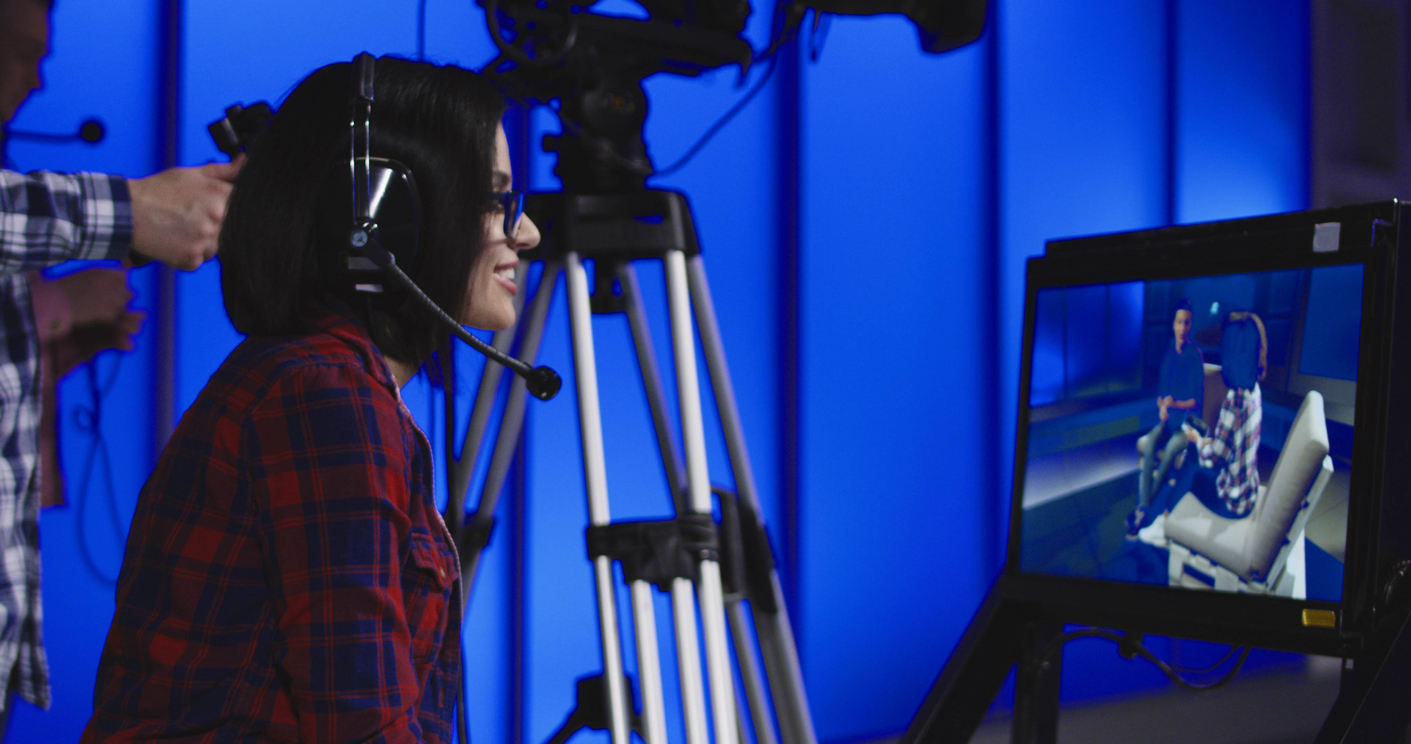In the world of virtual events, behind-the-scenes technical execution involves many moving parts that need expert orchestration. Ensuring a virtual event flows smoothly and effectively showcases your brand online, which is critical. When businesses host conferences and meetups in the physical world, organizers typically don’t think twice about hiring professionals for stage production, camera work, sound engineering, or facilities management. Contracting virtual event production expertise is just as crucial if you want your webcasts or hybrid events to be equally as engaging and successful.
Many corporate events, both virtual and in-person take weeks or months of event planning and preparation, then are over in a matter of hours or days. With professional recording and production, virtual events can be viewed as an on-demand recording for future needs. In our last post in this series, we described how professional virtual events experts could help your business prepare your “studio environment” with the right equipment. We also discussed the importance of maximizing event awareness with your target audience. In this post, we’ll explain how our virtual event experts can take care of the behind-the-scenes execution details, enabling your hosts, presenters, and staff to focus on delivering polished, compelling events to your clients, partners, investors, and other stakeholders.
Some leading types of hybrid or virtual events include:
- Conferences
- C-level townhalls
- Product launches
- User group meetups
- Shareholder meetings
- Sales and partner kickoff meetings
- Training and onboarding
Here are three key areas where a virtual event production team can optimize your webcast experiences for your live audience or those who catch the on-demand replay.
1. Technical Execution
After extensive planning, your presenters are in their places; their presentation decks are prepped and cued, and camera and sound checks are complete. Everything seems fine, yet with minutes to go before go-live, you notice that a presenter’s lighting has changed, and nobody knows how to best triage and respond to audience questions.
These are just a couple of details that can throw a monkey wrench into a webinar or online conference. Some events fail to hit the mark because they don’t align with the host company’s brand. In other cases, dry runs or rehearsals are skipped, and presenters fumble and stumble their way through their sessions and handoffs.
Augment your team with experts that understand virtual event best practices and can guide you on selecting a virtual events platform (and add-ons) that can facilitate the whole event lifecycle:
- Event portal and registration landing page
- Dividing attendees into smaller groups for networking sessions
- Playing music and self-running slides during intermissions
- Event log-in page and lobby
- Branded backgrounds
- Graphics for name keys, ticker tape crawlers for real-time messages
- Instant messaging to enable audience Q and A and audience conversations during breaks
- Participant polling and feedback forms
- Lead capture
- Event recording and presentation downloads
If running the virtual event platform in parallel with fine-tuning video, audio, presenters, attendees, and timing simultaneously seems doable without outside help, it’s because experienced professionals make it look easy.
It’s like a duck swimming across a lake, barely producing a ripple on the surface of the water. Just out of sight, their legs are working feverishly beneath to propel them forward. Virtual event experts rapidly switch camera views, level audio volume, post graphics, handle audience questions and record the event for those who missed out. Flawless execution requires experienced virtual event experts working behind the scenes throughout the event and beyond.

Why Unmanaged Virtual Events & Meetings Are Unprofessional
Watch this recorded webinar today to learn you can achieve greater impact from your virtual and hybrid events.
2. Event Analytics
Many years ago, marketing and sales professionals were primarily interested in how many prospects, customers, and partners attended an event, who they were, and how many qualified leads were generated.
With many of today’s advanced virtual event platforms, marketers can also discover how long attendees participated in an event, how engaged they were during the presentations, and how they answered poll questions and feedback forms. In many cases, they can track prospect or customer behavior after the event, such as responding to a call to action like downloading a case study or contacting a sales representative.
Gathering, processing, and analyzing event metrics often requires reading between the lines. A decision-maker may not have attended a call; however, they may have designated a direct report to watch it live, and they could have watched the replay multiple times. Virtual event reporting can provide your team with critical insights about how a specific event performed and provide lessons learned for future events of its kind.
3. Post-Event Engagement
Once the live event ends, it’s not wise to just blast out the recorded sessions to attendees and registrants. To create the most engaging and professional on-demand replay, you need post-event quality assurance editing, graphics optimization, and a high-quality MP4 video recording of the event.
Are you planning a virtual or hybrid event and need an experienced partner to help your team prepare, practice, execute, and address post-event production?
Contact us, and in the meantime, catch our recorded streaming webcast, “Why Unmanaged Virtual Events and Meetings are Unprofessional.”
